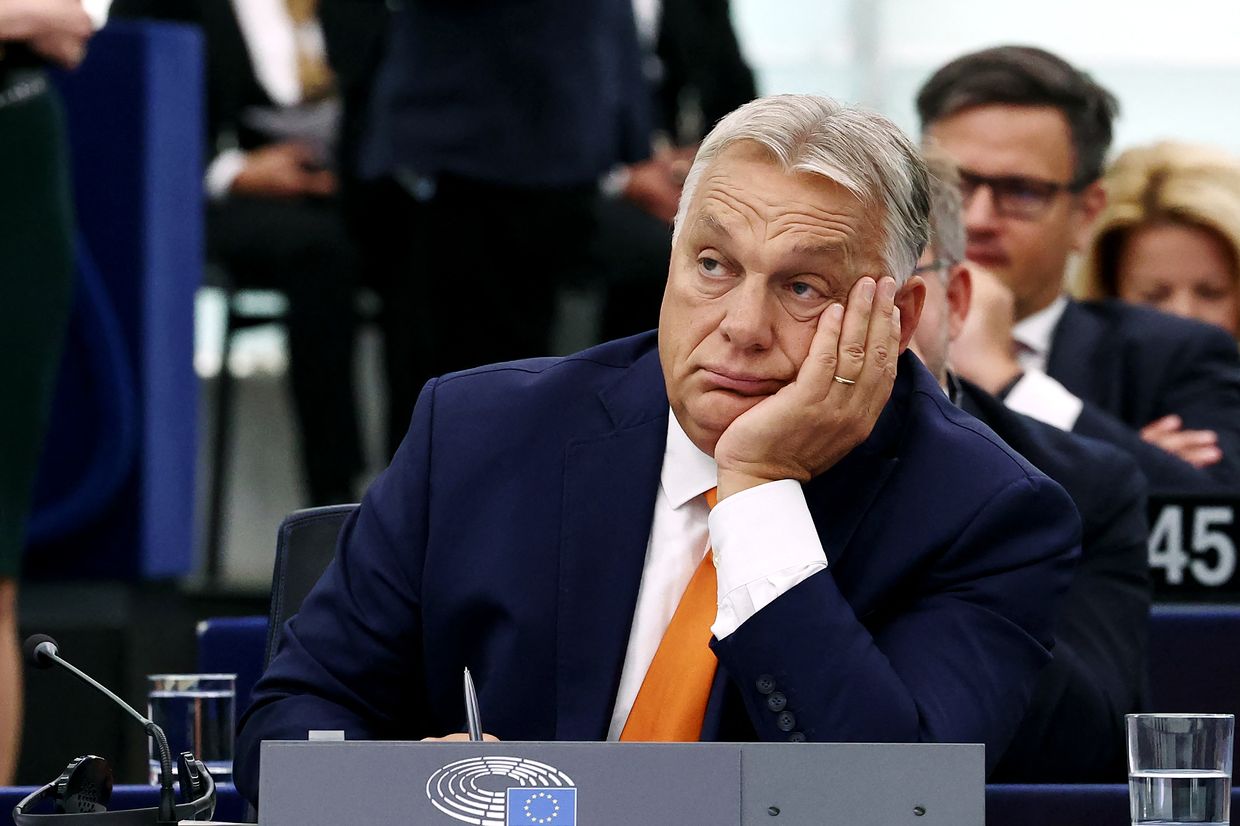Orban threatens to interfere with Ukraine aid to support Trump, Politico reports

Hungarian Prime Minister Viktor Orban is preparing to deliver a significant policy concession to former President Donald Trump, potentially allowing him to evade a $50 billion loan intended to support Ukraine amid its ongoing war with Russia.
Should Trump win the presidency in November, this move would enable him to reassure Republican voters that he would not provide additional financial assistance to Ukraine, Politico reported on Oct. 14. Hungary has said it will not approve changes to rules permitting the U.S. to take a substantial role in the loan until after the U.S. election.
The proposed loan relies on the profits from over $250 billion in Russian assets frozen in Western countries following Russia's full-scale invasion of Ukraine in February 2022.
While the U.S. insists that the European Union extend the sanctions renewal period from six months to a minimum of 36 months to facilitate this arrangement, Orban has opposed this extension. He alone can block the necessary changes since all 27 EU member states must agree to any modifications in sanctions rules.
Ukraine urgently requires fresh funding to sustain its government and prepare for a harsh winter as Russia targets its energy infrastructure. Orban's stance significantly complicates the U.S. involvement, yet Europe appears prepared to move forward regardless. An EU diplomat who talked to Politico on conditions of anonymity said: "If we don’t work this out [by extending the sanctions duration], it will cost the EU — including Hungary — more money."
"They [Hungary] don’t care if Europe has to pay more. It’s about helping Trump," another EU diplomat said. If the loan proceeds without U.S. participation, Trump would not be obligated to service it if reelected, significantly benefiting him politically.
As Orban threatened to use his veto power in Brussels, the U.S. signaled it might still participate in the loan, albeit for a reduced amount, of around $5 billion, equating to the Russian assets held domestically.
If Hungary remains unyielding on the sanctions duration, the EU plans to finalize the loan independently, as its budget rules facilitate quicker approval before year-end.












